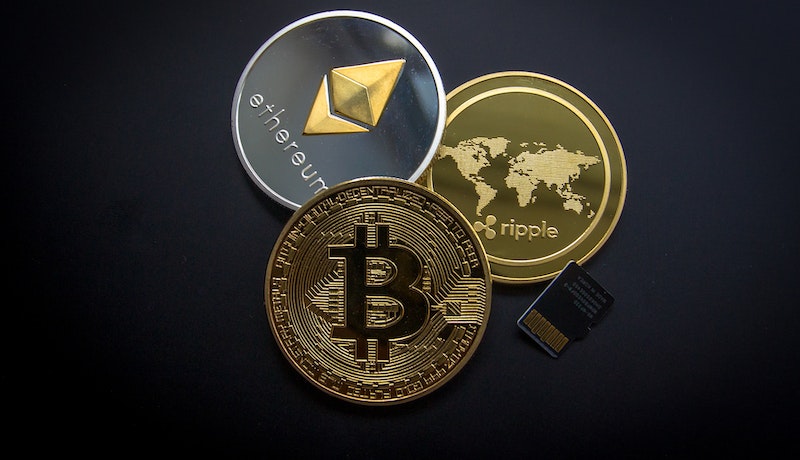Leading the Revolution: Exploring the Top Crypto Companies Shaping the Future of Blockchain Technology

The world of cryptocurrencies and blockchain technology has witnessed exponential growth and innovation in recent years. As the industry continues to evolve, certain companies have emerged as pioneers, driving the adoption and development of blockchain technology. In this article, we will explore some of the top crypto companies that are leading the revolution and shaping the future of blockchain technology.
1. Coinbase
Founded in 2012, Coinbase is one of the world's largest and most popular cryptocurrency exchanges. It provides a user-friendly platform for buying, selling, and storing a wide range of digital assets, including Bitcoin, Ethereum, and other altcoins. Coinbase has played a crucial role in making cryptocurrencies more accessible to mainstream users and has set the standard for regulatory compliance in the industry.
2. Binance
Binance is another prominent cryptocurrency exchange that was launched in 2017. It quickly gained popularity due to its extensive selection of cryptocurrencies, low trading fees, and robust security measures. Binance also introduced its native utility token, Binance Coin (BNB), which is used to pay for trading fees on the platform and participate in various activities within the Binance ecosystem.
Binance boasts an extensive selection of cryptocurrencies, providing users with access to a diverse range of digital assets. From popular cryptocurrencies like Bitcoin and Ethereum to promising altcoins and emerging tokens, Binance offers a vast marketplace where users can explore and invest in various projects. This wide selection ensures that users have ample opportunities to diversify their portfolios and participate in the growth of different blockchain ecosystems.
3. Ripple
Ripple, the company behind the XRP cryptocurrency, has focused on revolutionizing cross-border payments. Its blockchain-based payment protocol, known as RippleNet, facilitates fast, low-cost, and secure international money transfers. Ripple's technology has garnered partnerships with major financial institutions worldwide, making it a significant player in the fintech and blockchain space.
One of Ripple's primary goals is to enable fast and cost-effective cross-border transactions. Traditional international transfers can be slow and expensive, often taking days to settle and incurring high fees. Ripple's blockchain technology, powered by its native cryptocurrency XRP, facilitates near-instantaneous cross-border transactions at a fraction of the cost. This efficiency is achieved through Ripple's consensus algorithm, which eliminates the need for intermediaries and streamlines the transaction process.
4. Ethereum
Ethereum is not just a cryptocurrency; it is a decentralized platform that enables developers to build and deploy smart contracts and decentralized applications (dApps). Founded by Vitalik Buterin in 2015, Ethereum's blockchain has become the foundation for a vast ecosystem of decentralized projects and tokens, contributing significantly to the growth of decentralized finance (DeFi) and non-fungible tokens (NFTs). Ether (ETH) is the native cryptocurrency of the Ethereum blockchain, serving as a medium of exchange and a fuel for executing smart contracts and Apps. Ether also plays a vital role in incentivizing miners to secure the network and validate transactions. As the second-largest cryptocurrency by market capitalization, Ether has gained significant adoption and liquidity, making it a valuable asset for investors and developers alike. Ethereum has a vibrant and active development community that is constantly working on improving the platform's scalability, security, and functionality. Ethereum 2.0, also known as Ethereum Serenity, is a major upgrade that aims to address scalability issues by transitioning from a proof-of-work (PoW) consensus mechanism to a more efficient proof-of-stake (PoS) model. This upgrade is expected to significantly enhance the scalability and sustainability of the Ethereum network, paving the way for increased adoption and real-world applications.5. Chainlink
Chainlink is a decentralized oracle network that connects smart contracts with real-world data and external systems. It enables smart contracts to interact with off-chain data and APIs, making it a critical component for creating more advanced and versatile decentralized applications. Chainlink's technology has gained significant attention for its potential to bridge the gap between blockchain and traditional industries.
6. Cardano
Cardano is a blockchain platform that focuses on sustainability, scalability, and academic research-based development. Founded by Charles Hoskinson, a co-founder of Ethereum, Cardano aims to provide a more secure and robust infrastructure for smart contracts and dApps. The project's commitment to peer-reviewed research and scientific rigor has earned it a reputation for being one of the most innovative blockchain projects in the industry.7. Solana
Solana is a high-performance blockchain platform that stands out for its incredible speed and scalability. Its unique consensus mechanism, Proof of History (PoH), enables fast and secure transaction processing, making it well-suited for applications that require high throughput. Solana's technology has attracted attention from developers and investors alike, contributing to its rapid growth and adoption.
8. Chainalysis
While not directly involved in cryptocurrency trading or blockchain development, Chainalysis plays a crucial role in the industry. It is a blockchain analysis company that provides compliance and investigative solutions to various organizations and governments. Chainalysis helps ensure that the cryptocurrency ecosystem remains secure and free from illicit activities.
Driving Innovation and Adoption The top crypto companies mentioned above are at the forefront of driving innovation and adoption in the blockchain and cryptocurrency space. Their contributions have not only shaped the industry but also paved the way for broader acceptance and recognition of blockchain technology's potential. As the world continues to explore the possibilities of decentralized systems, these companies will undoubtedly play a vital role in shaping the future of blockchain technology.










Stacey Barnett 7 days ago
Wow interesting
ReplyJulie Terry 19 days ago
can't stop reading
ReplyHeidi Price 28 days ago
always learning from you
Reply